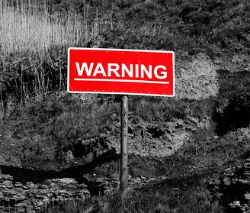Pirate Bay Founder Released From Jail But Immediately Re-Arrested
vendredi 28 août 2015 à 11:08 Back in June after a highly technical court hearing, a jury at the Appeal Court in Denmark again found Gottfrid Svartholm guilty of hacking IT company CSC.
Back in June after a highly technical court hearing, a jury at the Appeal Court in Denmark again found Gottfrid Svartholm guilty of hacking IT company CSC.
The ruling meant that the Pirate Bay founder had no further avenues for appeal, despite continuing to protest his innocence.
However, due to how the appeals process played out, Gottfrid’s jail sentence was close to completion anyway, meaning that the Swede would be up for parole middle to late August.
Yesterday morning and after several long years Gottfrid completed his Danish prison sentence, but freedom didn’t await the Pirate Bay founder. Rather than leaving Denmark a free man, Gottfrid was immediately re-arrested by the police. The disappointment wasn’t entirely unexpected, however.
In June, Gottfrid’s mother, Kristina Svartholm, informed TorrentFreak that the Swedish Prison and Probation service had requested an arrest warrant for her son. The problem was that when Swedish authorities sent Gottfrid to Denmark after serving his earlier sentence, he hadn’t actually completed his sentence back home. Four weeks remained.
“[This was] never communicated properly to Gottfrid, neither from Sweden nor Denmark. We found out about it on our own,” Kristina informs TF.
Making matters worse, Gottfrid was only advised 48 hours before his supposed release date this week that in fact he’d remain in custody.
“Tuesday this week, two days before his release date (which was officially communicated to him only some two weeks ago) Gottfrid was informed that the Danish prosecutor had decided that he should be handed over because of the warrant,” Kristina informs TF.
Always a fighter, Gottfrid is in a Danish court this morning appealing his arrest and the decision to send him to Sweden, but news of the outcome has yet to reach Kristina. Swedish authorities previously filed a request for the remaining sentence to be served in Denmark but that was refused by the Danes.
If successful this morning Gottfrid might be able to serve the sentence in a Danish prison. Should the appeal fail, Gottfrid will be extradited back to Sweden where he is expected to serve around a month before being released.
What happens after his ultimate release will be up to Gottfrid, but he certainly won’t be returning to Denmark. The Pirate Bay founder is banned from the country for life, something that presents travel difficulties for a Scandinavian looking to visit countries elsewhere in Europe by land.
Nevetheless, plenty of other options remain open, including ones that simply require a screen and an Internet connection.
“What Gottfrid wants to do now, more than anything else, is to get back to his developmental work within IT (graphics etc),” Kristina previously told TF.
“And, of course, first of all: to sit by a keyboard again after nearly three years away from one.”
Source: TorrentFreak, for the latest info on copyright, file-sharing, torrent sites and ANONYMOUS VPN services.
 Every day copyright holders send millions of DMCA takedown notices to various Internet services.
Every day copyright holders send millions of DMCA takedown notices to various Internet services.  This week it was revealed that Paul Mahoney, the former operator of streaming portal FastPassTV, is now facing a
This week it was revealed that Paul Mahoney, the former operator of streaming portal FastPassTV, is now facing a  As the poster-child of online piracy, The Pirate Bay has become one of the most censored websites on the Internet in recent years.
As the poster-child of online piracy, The Pirate Bay has become one of the most censored websites on the Internet in recent years. After years of wrangling, on September 1, 2015, Australian ISPs will take the historic step of implementing a new anti-piracy scheme, one that will see Internet users issued with escalating warning notices designed to bring a halt to their pirating ways.
After years of wrangling, on September 1, 2015, Australian ISPs will take the historic step of implementing a new anti-piracy scheme, one that will see Internet users issued with escalating warning notices designed to bring a halt to their pirating ways.